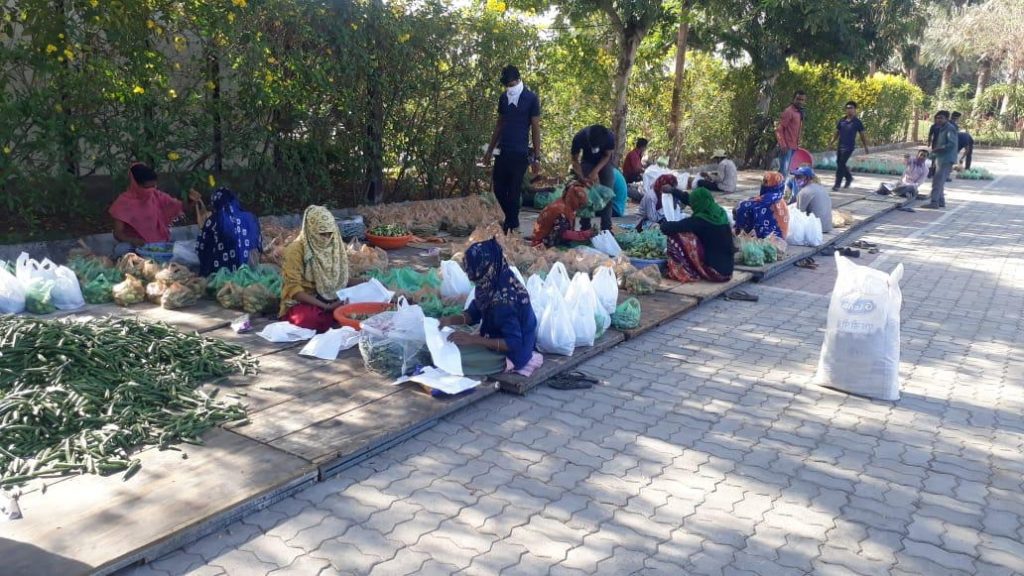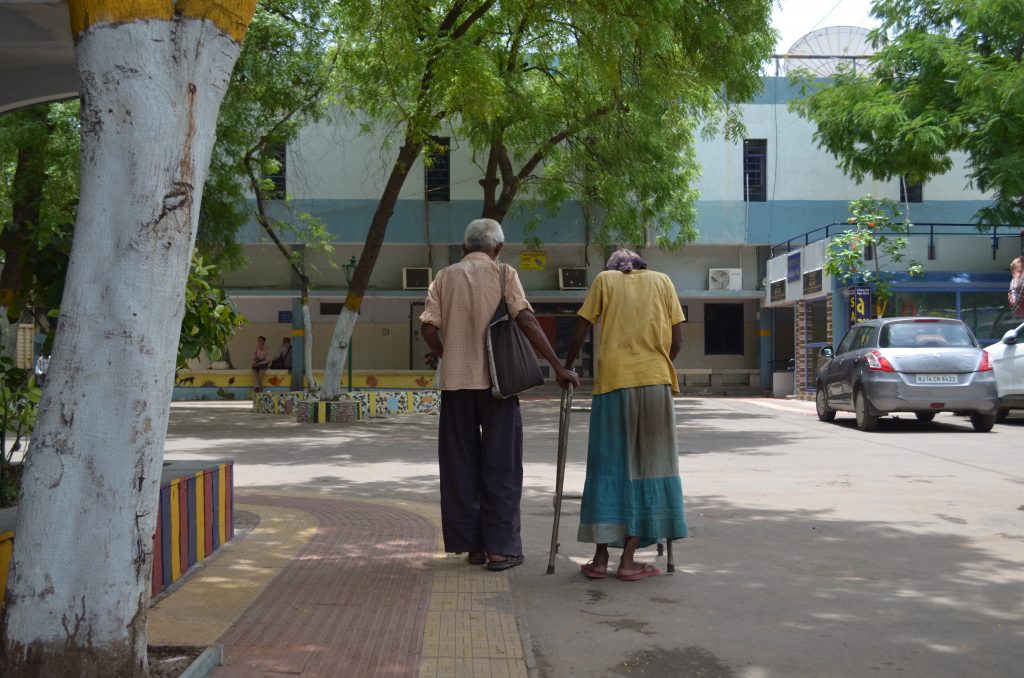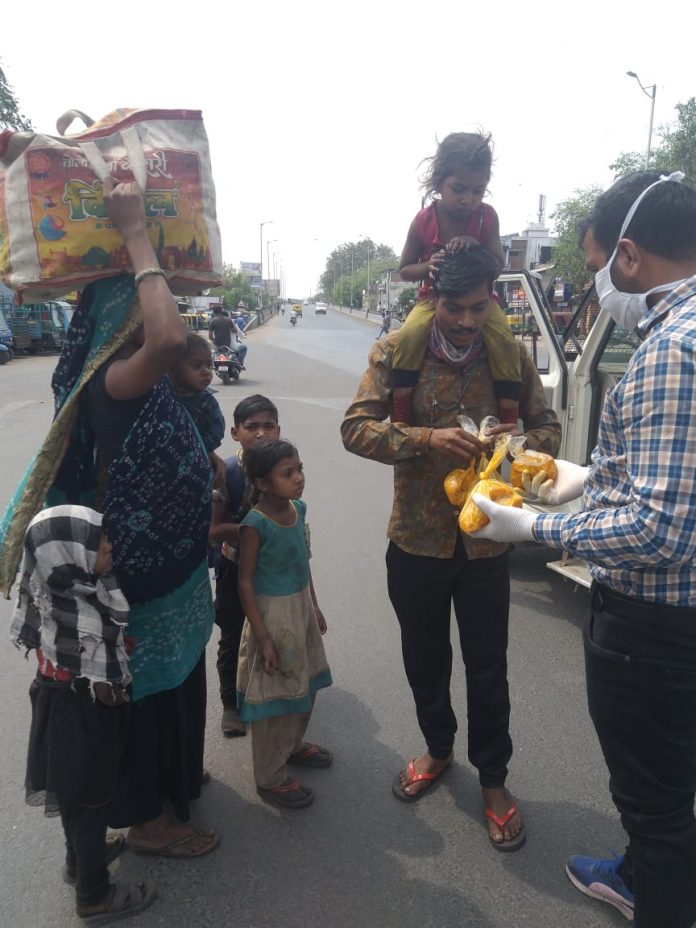Mahesh Trivedi for TwoCircles.net
Gujarat’s five-million-odd migrant workers are on the run even as the number of Coronavirus positive cases in the state shot up from just two on March 19 to an alarming 53 on March 28. While the total Coronavirus cases shot up to 918 in India, thousands of migrant laborers are faced with an uncertain future in the aftermath of the nationwide three-week lockdown imposed on March 25.
“Surprisingly, the Gujarat government organized hundreds of state transport buses within hours to ferry thousands of people to the venue of Donald Trump’s programme but have made no arrangements even after several days to take these hard-up families to their native places,” says Congress leader Arjun Modhwadia.

In the absence of rail services and interstate buses, hundreds of migrant laborers, daily wagers, domestic servants and others employed in the unorganised sector have been rushing on foot to their home states. Despite the state government threatening to file police cases against them if they did not stay put, the marginalised lot has been marching hundreds kilometres on highways linking neighboring Rajasthan, Maharashtra and Madhya Pradesh and as well as far-flung Bihar and Uttar Pradesh in the absence of any public transport. Out of their jobs, the daily wagers are unsure of financial aid from the state administration in the near future and are braving the heat carrying their belongings on their shoulders and toddlers by their side, walking cheek by jowl on desolate roads without food and water on their arduous journey.
Following orders from the federal home ministry on March 28 after a public interest litigation was filed in the Supreme Court “to redress the heart-wrenching and inhuman plight” of thousands of migrant workers, the state authorities, in a bid to halt the mass exodus, asked district collectors to arrange for food, medicare and accommodation for the workers, told factory owners to pay them wages in advance and even launched a helpline for them.
However, the migrants were not impressed with the result as in no time scores of other penniless families joined the walkathon even after 25 shelters with all facilities were opened in Ahmedabad to prevent these ‘virus carriers’ from entering their villages back home.

The Gujarat government has told employers to give food, accommodation and financial aid to their employees but has not made it mandatory. “Since our factory is closed, I know my boss won’t fall in line to oblige the government,” said Bharat Dungarpuria, a textile worker from Rajasthan.
Over the past few years, some five million people have left their place of birth in other states and migrated to Prime Minister Narenda Modi’s wealthy industrialised home state to eke out a living. Uttar Pradesh accounts for the largest group with one million migrants, followed by Maharashtra (975,000), Rajsathan (800,000) and Bihar (400,000), besides a sizable influx from Odisha, West Bengal, Jharkhand and Kerala, with 80 per cent of the workforce belonging to unorganised units.
While the government seems to care less for these migrants, destitute, beggars, homeless and local daily wage earners, others from the several selfless voluntary oganisations and golden-hearted caterers like Flavours have risen to the occasion to lend a helping hand to them. Social reformist Ruzan Khambatta’s Wajra O’ Force Empowerment Foundation, for example, in association with the Gujarat Police and Manav Seva Mandal, has in the past few days distributed about 20,000 food packets to vagrants and daily laborers struggling for essentials for bare survival.
“There are centres which provide free meals to the poor once daily but they are now closed because of the lockdown and so one must spare a thought for those who find it tough to make both ends meet in these tough times,” Ruzan told TwoCircles.net

The Gulmohar Greens Golf Club on the outskirts of Ahmedabad, closed due to the shutdown, also hit upon a novel idea to stop its 300-odd non-Gujarat employees from running away to their home states. The popular club not only offered them food and accommodation on its club premises but also utilized their idle time to prepare packets of fresh vegetables for the needy. Managing Director Alpesh Parikh informed us that ever since the lockdown they have been buying fresh vegetables in bulk from the Momin community farmers of a nearby village at reasonable rates and packaging them into some 1,200 attractive, two-kilogram packets and passing them to the municipal corporation for distribution among the poor in the city.


